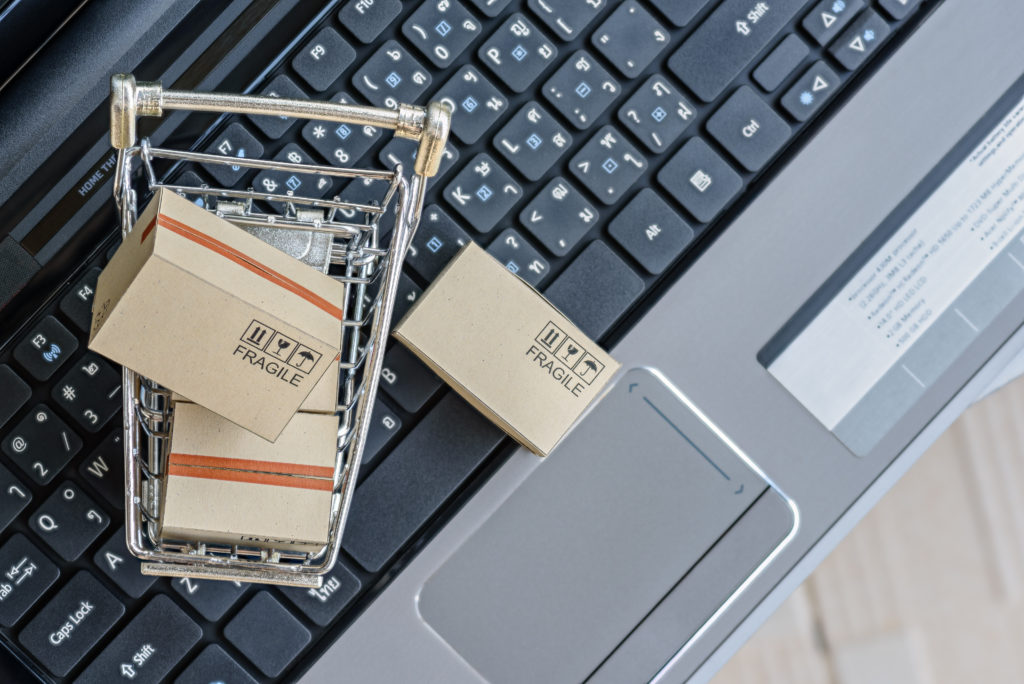There are great ongoing opportunities for postal operators in e-commerce. Experienced international CEO Dr Achim Dünnwald explains how posts can go beyond the last mile in helping e-commerce companies – creating a win-win situation
E-commerce is a secular trend that will continue for the foreseeable future. The famous flywheel of ever more sellers providing more and more choice, thus improving the customer experience and generating more traffic, continues to work. And with less than 20% of retail value sold online even in the most advanced markets, online sellers are certainly not opportunity constrained.
The biggest ‘but’ for the many thousands of smaller online sellers, both established and new, is the high market concentration. In Germany, for example, the 10 biggest sellers generate about one-third of gross revenue online. Amazon boasts 40% market share or more in some of its key markets, counting both its own retail offerings and products sold via its marketplace. So, the hard choice for smaller online retailers is to find the right balance between participating in online growth by opening a channel via one of the leading marketplaces and remaining sufficiently independent that they cannot simply be substituted by other marketplace sellers or the marketplace provider itself.
Against this background, it is unsurprising that many online merchants say that independence is important to them (two-thirds according to a study by DHL in cooperation with IFH Köln). Hence the question becomes: What can they do to stay independent and how could postal and parcel operators help them to do so?
The recent study mentioned above gives a number of good insights and tactical answers to this challenge. On logistics in particular, it has been clear for a long time that fulfillment and delivery are key to a great customer experience and a key factor for retaining customers, second only to the service aspects of shopping experience, customer service, etc.
Postal and parcel operators can play a key role here which includes, but goes far beyond, last-mile delivery. Some operators, including DHL Paket in Germany, offer warehousing and fulfillment, which can in itself be an interesting business opportunity and a potential differentiator for senders, enabling them to offer quick and flawless pick and pack with late cut-off times and go beyond the standard fulfillment by flexibly including personalized offers or giveaways.
Leveraging bricks-and-mortar shops as a warehouse for multichannel retail, including click-and-collect options or instant delivery to the local community, is also not entirely new. A real remaining challenge is to organize a simple fulfillment and dispatch preparation process outside the big marketplaces. Several ‘local commerce’ initiatives and startups are underway, but none has yet emerged as a clear winner. ‘Connected commerce’ providers which often come in from the hardware side (like the German provider Enfore) open yet another inroad into this space. Postal and parcel providers can contribute by offering radically simple solutions for micro-fulfillment and dispatch, like accepting parcels with a hand-written code on them, generated by the carrier’s sender app – all further handling is done be the carrier itself.
In the last mile, flexibility, speed and transparency have been the name of the game in the past few years. Easy flow of track-and-trace data between sender, carrier and recipient, alongside clever sharing of delivery preferences, etc, enable a better delivery experience (along with higher efficiencies). Making delivery options like same day/instant, delivery time windows for outbound shipments and even returns, especially when they are easy to book and pay, available for smaller senders, can also create a win-win situation.
We could continue this list, but the bottom line is: with creativity and willingness to innovate, there is a lot of opportunity both for the smaller senders and the postal and parcel companies. The biggest challenge for the carriers is, not unsurprisingly, similar to the one that the smaller online retailers face: namely to get across the hurdle of diverting some management attention and money away from the ‘easy growth’ to be had from the very big senders, and putting it into the IT- and process-driven solutions necessary to build and maintain a long-term sustainable ecosystem in online retail.
We believe that this is an important opportunity and those operators who ‘get it’ will win quality, higher priced parcels as well as customers who may grow to become big players in their own right.
Bios:
 Dr Achim Dünnwald is the former CEO of DHL Paket.
Dr Achim Dünnwald is the former CEO of DHL Paket.

Ian Kerr is the founder and host of the Postal Hub Podcast, the weekly podcast for the postal and delivery sectors.

Marek Różycki is managing partner at Last Mile Experts, specializing in CEP and e-commerce last-mile advisory.
![]()


